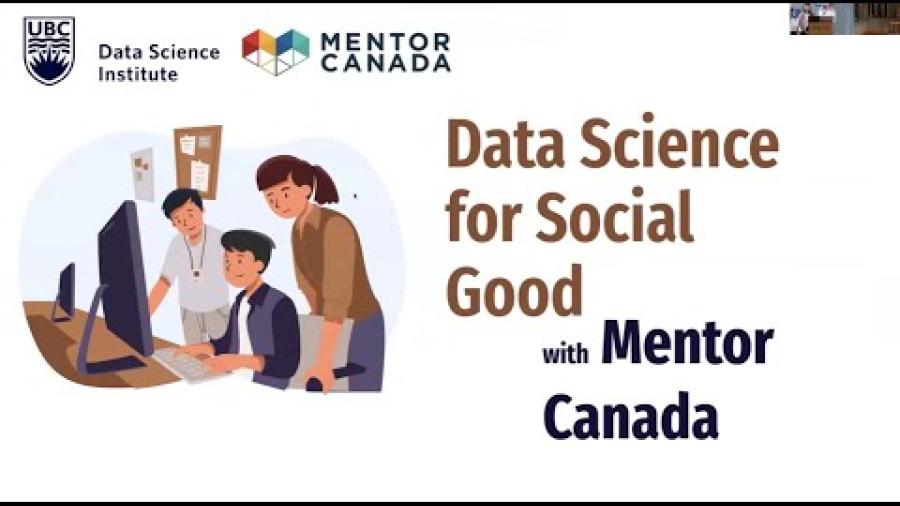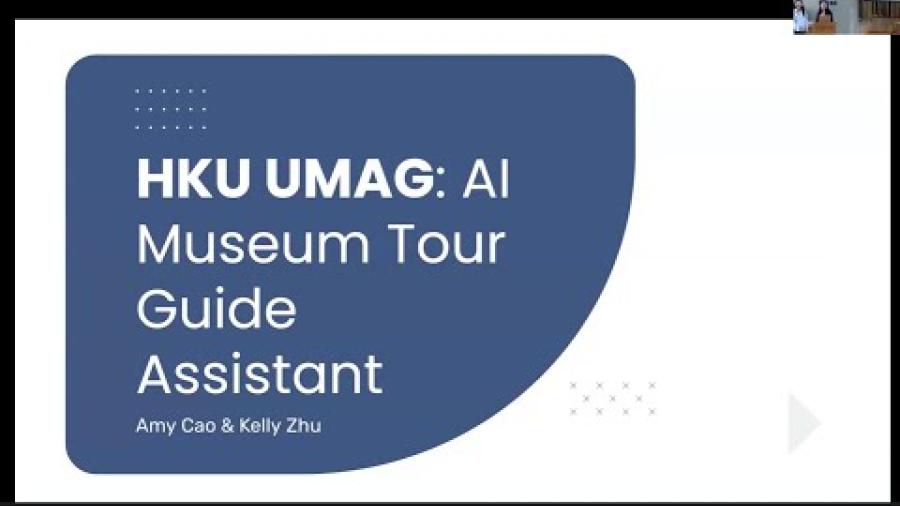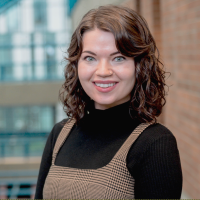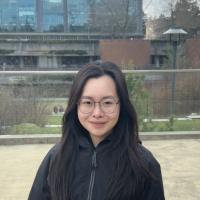The 2025 Data Science for Social Good (DSSG) program has been made possible with the support from the UBC Faculty of Science, UBC Career Centre, and CIFAR, and through project partnerships with Mentor Canada, UBC Office of Enterprise Risk and Assurance, the University of Hong Kong, and the University Museum and Art Gallery at the University of Hong Kong.
2025 Projects
Exploring the Impact of Youth Mentorship through Data Science
Description: Mentor Canada advocates for equitable access to high-quality mentorship for youth across Canada, recognizing the lasting positive impact mentors can have on future-planning skills, educational attainment, and career outcomes. However, significant barriers, such as lower socioeconomic status (SES), often limit access to mentorship opportunities. Leveraging a rich survey dataset of over 2,800 responses, we applied statistical techniques, including regression modeling, autoencoder-based clustering, and Latent Class Analysis (LCA), to identify distinct youth profiles, uncover inequities, and evaluate the influence of mentorship on key life outcomes. In parallel, we employed Natural Language Processing (NLP) to develop a Retrieval-Augmented Generation (RAG) chatbot and online resource hub, enabling stakeholders to easily access findings and relevant mentorship resources. This project deepens the understanding of mentorship’s impact, particularly for underrepresented groups, and transforms data-driven insights into actionable recommendations for families, educators, program designers, and policymakers.
Final Presentation:

Expanding the Risk Universe: Leveraging NLP for University-Related Risk Identification
Description: The University of British Columbia (UBC) faces emerging risks that could affect the university’s goals, operations, and compliance with laws and regulations. To mitigate these risks, the Office of Enterprise Risk and Assurance (ERA) has developed the Risk Universe, a comprehensive framework that categorizes and organizes the university’s potential risks across various domains. To update this Risk Universe, the ERA currently gathers and manually analyzes publicly available textual data from various sources (e.g., research papers, news articles, and industry reports). However, due to the time-consuming nature of analyzing large volumes of textual data, this project seeks to automate the initial research process: the identification and extraction of risk information. Additionally, our goal is to create a user-friendly and interactive interface that provides ERA and UBC with clear and interpretable insights about ongoing and evolving risks.
Final Presentation:

Personalized AI Tour Companion for Museum Educators
Description: This project supports field trip experiences by creating a personalized AI-powered guide designed for volunteer museum tour guides leading children’s groups. In collaboration with the University Museum and Art Gallery (UMAG) at the University of Hong Kong (HKU), we are developing a tool that helps guides deliver engaging, age-appropriate tours with minimal prep time.
Unlike traditional static guides, this tool dynamically generates walkthroughs based on the needs of young audiences. Guides fill out a short survey before the visit—indicating the group’s age range, time available, and learning preferences. The system then generates a custom itinerary with simplified summaries, interactive questions, and suggested activities for each exhibit stop.
Built on a Retrieval-Augmented Generation (RAG) pipeline, the tool leverages local models and UMAG’s curatorial materials. Our goal is to make museum visits more intuitive, fun, and accessible—especially for those without formal teaching or art history backgrounds.
Final Presentation:

Final Presentation Poster
(Please right-click to "Open Image in New Tab" for the bigger version.)

2025 Fellows

Maxine Paredes
Maxine is in her last year of BSc in Cognitive Systems and a minor in Data Science. She has experience working in multiple research labs across various disciplines, including the Visual Cognition Lab, Social Health Lab, and the Sensing in Biomechanical Processes Lab (SimPL).
Passionate about making data science more accessible, she is committed to developing innovative and transparent solutions in unconventional contexts, such as using computer vision models to locate and segment cervical spine fractures on CT scans.
Through the DSSG program, Maxine hopes to gain hands-on experience as a data scientist while working on meaningful projects that address real-world challenges. She looks forward to refining her technical skills while applying data science to make a tangible impact. In her free time, Maxine loves to
spend her time hiking, bouldering, and discovering new thrift stores.

Amy Cao
Amy is entering her fourth year at UBC, majoring in Psychology with a minor in Data Science. Currently, Amy works as a Project Assistant at the UBC Cloud Innovation Centre x AWS, where she helps develop web-based solutions that enable sponsors to better utilize their data through AWS-hosted applications. She is also the Website Manager for UBC’s Women in Data Science Club, where she contributes to marketing efforts and enjoys being part of a supportive community of women in tech.
Beyond academics, Amy actively participates in case competitions and hackathons, where she enjoys creatively solving problems using datadriven insights from user interviews, research, and analytics. These experiences fuel her passion for building impactful solutions.
Through the DSSG Fellowship, Amy is excited to apply and refine her data science skills while collaborating with a team and learning from experienced mentors.

Emma Oh
Emma is a fifth-year student majoring in Statistics with a minor in Data Science. With co-op experience as a data and GIS analyst, she has gained practical experience in ensuring data quality, cleaning,
visualization, and workflow automation across fields like competitive intelligence, fintech, and public transportation safety.
Through the DSSG program, Emma hopes to apply her current technical skills and statistical knowledge while exploring new approaches in data science. She looks forward to utilizing data to develop transparent and accessible solutions and deepen her understanding of how data science can drive meaningful societal change. In her free time, Emma enjoys playing tennis, hiking, doing puzzles and other recreational sports!

Miranda Long
Miranda is a PhD student in the Department of Psychology. Her research investigates how humans acquire new knowledge, focusing on how visual and auditory environmental regularities influence this learning. Miranda’s work utilizes a combination of experiments, multilevel modeling, and computational modelling to determine how humans learn new information.
As a DSSG fellow, Miranda aims to expand her skills in data science, gain experience working in interdisciplinary teams, and learn how to make complex data and information accessible to others.

Jinyang Yu
Jinyang is a Bachelor of Computer Science second-degree student with a background in sociology. Her interests lie in natural language processing (NLP), particularly in its applications for social impact. With an interdisciplinary perspective, she aims to bridge gaps between technology and the social sciences to create ethical, innovative, data-driven solutions.
As a DSSG fellow, she hopes to expand her expertise in NLP and large language models, applying these skills to meaningful projects that drive positive change in society. Outside of academics and work, Jinyang is a K-pop fan who enjoys attending concerts. She also loves playing badminton with friends as a way to stay active and unwind.

Isobel Adams
Isobel is in her fourth year studying Statistics and plans to complete a minor in Mathematics. Her concentration in Computer Science has allowed her to integrate Statistics into software projects, fueling her
passion for leveraging data-driven insights to drive innovation and deliver meaningful outcomes. Through various projects, she has developed a strong interest in applying machine learning techniques across different environments.
As a DSSG fellow, she is excited for the opportunity to apply her skills in a meaningful way and make a positive impact. She also hopes to gain valuable insights into the diverse applications of data science. In her spare time, Isobel enjoys music, movies, and hiking.

Kelly Zhu
Kelly is graduating with a degree majoring in Computer Science and a minor in Data Science. During her undergraduate program, she has worked in several technology positions including: informatics developer at UBC Pharmacists Clinic, synthetic data research assistant at UBC NINET, and data analyst internships at Johnson & Johnson and Amazon. She has a strong interest in exploring the intersection of data science with multidisciplinary fields, and is always excited to learn about new domain spaces.
As a DSSG fellow, she is looking forward to leveraging machine learning and creating technical solutions to solve problems in her community. This summer, Kelly is looking forward to classic Vancouver
activities such as hiking, kayaking, and watching fireworks!

Vincy Huang
Vincy is a Psychology undergraduate with a minor in data science. With an academic and research background in life sciences and bioinformatics, she is passionate about applying data science principles to automate reproducible and trustworthy machine learning workflows. She is eager to leverage her skills to deliver data-driven solutions that create concrete, positive impacts in her community.
Coming from an interdisciplinary background, Vincy hopes to bridge the translational gap between complex analytical research and its accessibility to the wider public. Outside of work, you can often find her
sipping a cup of nice matcha while enjoying her books and music!